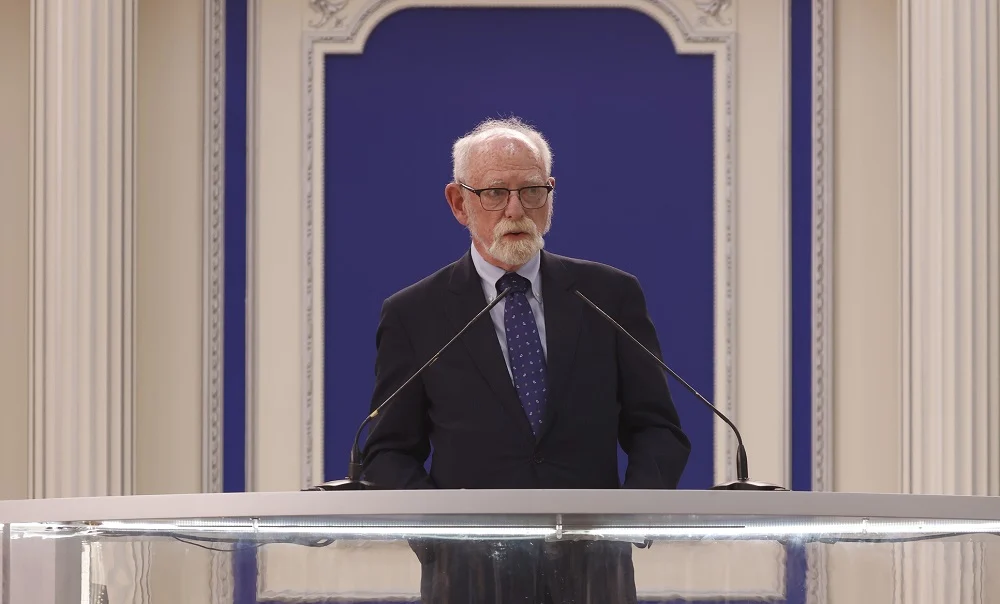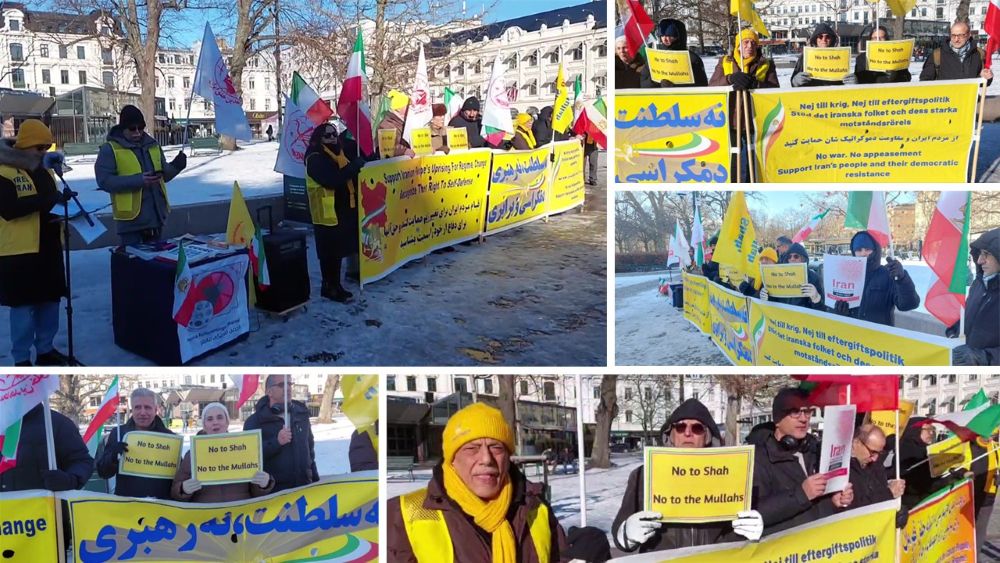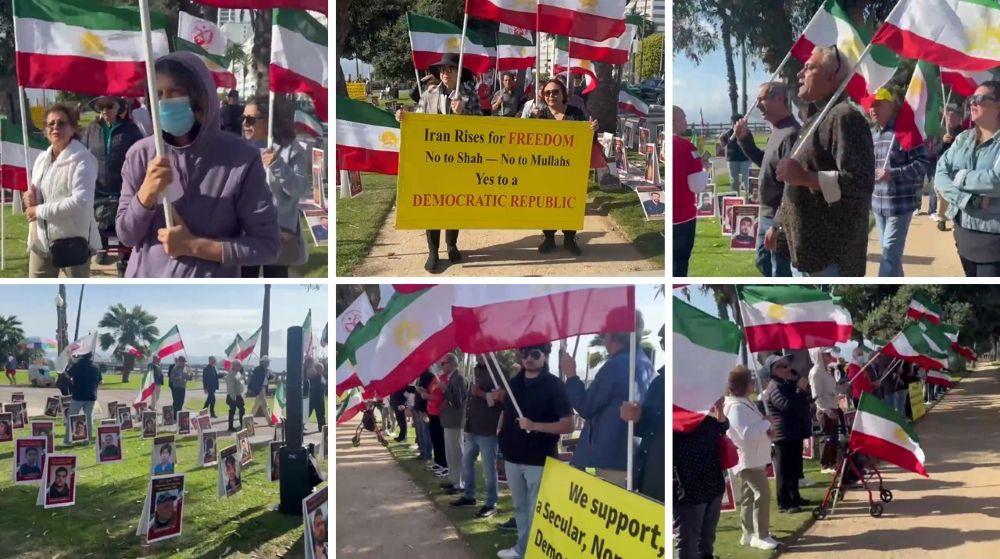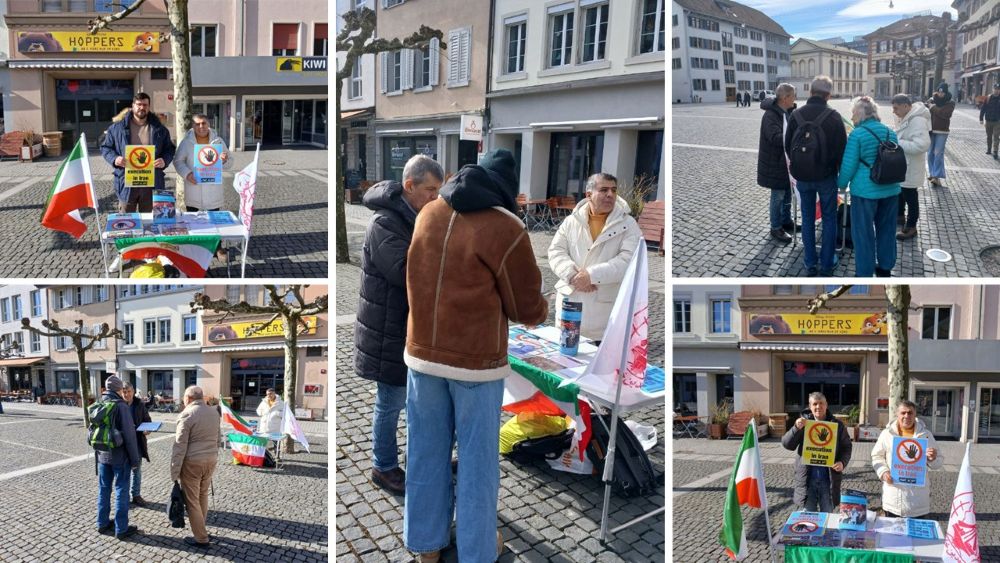
At an international conference near Paris, Steven Schneebaum, Interim Director of the International Law and Institutions Program at Johns Hopkins University’s School of Advanced International Studies (SAIS), delivered a powerful speech condemning the Iranian regime’s recent show trials against members of the People’s Mojahedin Organization of Iran (PMOI/MEK). He denounced these trials as a transparent effort to stifle political opposition under the pretense of legal proceedings.
Schneebaum pointed to the recent in absentia trial of 104 members and leaders of the Iranian Resistance as a clear example of the regime’s anxiety over democratic opposition. “If the MEK is so insignificant, so isolated, and so marginalized, why does the regime remain endlessly obsessed with it?” he asked, highlighting the regime’s desperation to eradicate any credible challenge to its authority.
He also criticized the Iranian judiciary for invoking non-existent or irrelevant international treaties to justify its actions, emphasizing that the regime is not a party to most international conventions on terrorism. Schneebaum argued that these actions expose the regime’s blatant disregard for international norms and human rights standards, using the trials as a pretext for further repression. “The presiding judge in Tehran has repeatedly cited Article 3 of the Terrorism Convention,” Schneebaum noted, “but the problem, of course, is that no such convention or obligation exists.”
Additionally, Schneebaum expressed concern about the regime’s possible ulterior motives, suggesting that these sham trials could serve as a cover for a new wave of terrorist attacks against MEK members and other opposition figures abroad. He called on the international community, particularly lawyers and legal scholars, to remain vigilant and prevent Iran from using these fabricated legal proceedings to justify further violence.
The full text of Steven Schneebaum’s speech follows:
Thank you, Mrs. Rajavi, for the invitation to be here today.
I come to this conference confident that our exploration of international law principles will actually make a difference in promoting the MEK’s ability to present its case for justice in the court of public opinion. Professor Ruffman’s courageous report has irrevocably revealed the atrocity crimes committed by the regime 36 or more years ago. The vileness thus exposed, it is up to the international community guided by lawyers to confirm its resolve to isolate and sanction the regime, to treat it as a repeat offender against international law and human rights, and to identify with the cause of the brave Iranians seeking to restore decency to their land.
Today, however, my focus is not on 1988, but on 2024. In a twist that the word perverse is inadequate to describe, the regime has begun what it is calling a trial, in absentia, of some 104 leaders and supporters of the MEK. That is what I want to talk about today.
Some of them are in this room right now. There is something about the regime’s attitude toward the PMOI that I have always found fascinating. It constantly insults the organization as virtually without support in Iran, using derogatory words like group-let and hypocrites, as if it were a minor annoyance rather than a threat to the regime’s very survival.
But if the MEK is so insignificant, so isolated, and so marginalized, what accounts for the regime’s endless obsession with it? Why the murders at Camps Ashraf and Liberty? Why the unceasing propaganda campaign? Why the attempt to bomb the NCRI rally, a rally that I attended here in Paris in 2018? And why is this new crusade, this show trial, whose foreordained outcome no one outside of Iran, and probably no one inside it either, is going to credit? The answer to those questions is, I think, self-evident. The regime is deftly afraid of the Iranian resistance and with good reason. It will stop at nothing to destroy what it most fears, democratic opposition that offers the Iranian people hope for freedom from their oppressors.
So let’s look at these proceedings. They began in Tehran last December with the indictment of over a hundred individuals and the MEK itself. They are charged with a list of offenses of which the centerpiece is terrorism, terrorism, and insurrection, or with the mullahs’ characteristic pseudo-religious overlay, waging war on God.
#Iranian Regime’s Mock Court Reveals Deep-Seated Anxiety Over #MEKhttps://t.co/Jc5NQOGPLE
— NCRI-FAC (@iran_policy) July 10, 2024
In making these accusations, the regime has the audacity to rely on treaties to which it is not a party, and in some cases treaties that do not even exist. And the waging war charge, really nothing more than the offense of rejecting the infallibility of the supreme leader, obviously has no international counterpart. The presiding judge in Tehran has repeatedly invoked Article 3 of the Terrorism Convention, as he says.
He cites it as the source of the duty of states hosting the accused to try them in their own countries, or to extradite them, or as international lawyers like to use the Latin expression ot deitere, ot iudicare. But the problem, of course, is that there is no such convention and no such obligation. Since the regime came to power in 1979, of the 15 or more treaties and protocols relating to terrorism opened for signature, Iran has signed one, relating, as it happens, to organized crime, and has not ratified even that.
Yet the inconvenience of relying on non-existent treaty provisions has hardly deterred the mullah’s judicial officer from pronouncing a verdict before a single word of testimony was heard, or a single piece of evidence offered. This is not surprising. Under the Iranian Constitution, judges lack the discretion to disobey or even to question fatwas or orders issued by religious leaders, and the ultimate authority in this case has already pronounced the verdict.
Here is what Ayatollah Khomeini had to say when he ordered the massacre of MEK adherents in 1988. You’ve heard this line quoted already today. As the treacherous Munafeqin, the insulting term, do not believe in Islam, and as they are waging war on God, and in light of their cowardly blows to the Islamic Revolution since its inception, it is decreed that those who remain steadfast in their support for the mujahideen are condemned to execution.
Thus, the trial judge regularly refers to the defendants before him, the defendants on trial for terrorism, as terrorists. He has not questioned the regime’s fictional claim that the MEK has been responsible for some 12,000 deaths of innocent Iranians since the overthrow of the Shah, although no evidence for that claim has been, or will ever be, forthcoming. The crime of waging war on God, as we all know, Moharrabeh, is punishable by death.
And just as the Ayatollah did then, the judge in Tehran has done now. He has declared the outcome of the trial before the trial begins. All members or supporters of the MEK are by decree guilty.
There is no need to determine the facts. There is no need to consider whether a law designed for no other objective than keeping the regime in power is acceptable under contemporary human rights standards. When the judge repeatedly invites the defendants to come to appear in court in Tehran, he is effectively asking them to commit suicide.
So what is the point here? Why this sham exercise? What audience is expected to fall for these lies? The regime lays accusations under Iranian law against individuals who have not set foot on Iranian soil in more than 30 years. There is absolutely no reason for anyone to accept the word of the leading state sponsor of terrorism in the world today in relation to this travesty. Now, it seems clear that the mullahs intend to demand that the countries in which the defendants are living, primarily France and Albania, extradite them.
Of course, that must never happen. Albania has no extradition treaty with Iran. And although France does, it is inconceivable that the French would extradite individuals to a country where they would face inevitable execution.
Nor does any universal aut unicare principle mandate or indeed or permit extradition absent a treaty. And even where treaties are in place, the political offense exception generally prohibits not only extradition, but any form of judicial assistance to a process designed to achieve not justice, but suppression. The dual criminality requirement means that extradition may be had only for acts that are crimes in both the requesting and the requested state.
To my knowledge, no country other than Iran presumes to criminalize waging war on God. So, the regime will never get its hands on these people. As we say in rural America, that dog won’t hunt.
Any Red Notice requested by Iran should be rejected at the outset by Interpol, and if issued, should be ignored by any country to which it is presented. This is hardly the first time that Iran has attempted to abuse the good offices of Interpol. That agency’s constitution Article 3 expressly prohibits assisting in the apprehension of a government’s political opponents.
End of story. I think that the outcome that justifies all of this to the regime is the intention to portray the West as ignoring norms of international law, including ones that they themselves made up. This would permit the theocracy to claim that it is America, France, and the NATO ally Albania that flout the law, that harbor convicted terrorists, and that refuse to turn them over to face justice.
There may, of course, be other explanations. One possibility, not to be taken lightly, is that the fake legal drapery is designed to camouflage a new campaign of terrorism against the MEK and other regime opponents abroad. Another is the hope that the Albanian government, which has already shown lapses in its previously principled position in hosting Ashraf 3, may bend to additional pressure.
So here is where we international lawyers come in. Our role, our duty, is now to ensure that the regime’s gambit does not work. No government, no government, no government, no rational person should take seriously for a moment the notion that somehow the MEK is responsible for terrorism against the terrorist regime in Tehran.
Not only must the events of 1988 not be forgotten, but what the regime is attempting to do right now must also be in the public eye. We, from countries where the rule of law matters, have the obligation now to defend the truth in the face of lies and distortions. That is the challenge that I want to lay before this distinguished audience today.
And I don’t think we can shrink from it. Given the quality of the presentations that we have heard in this room today, I dare say that we will resolutely rise to the occasion.
Thank you.



